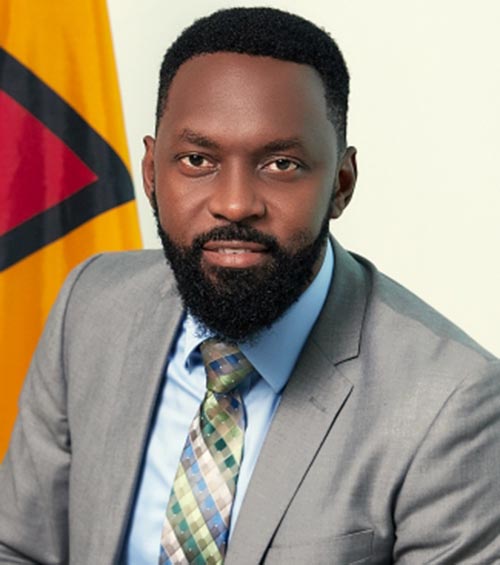As the private sector begins compilation of a list of possible nominees for the Natural Resource Fund (NRF) Board, the Opposition says that it will not participate in any parliamentary selection process because it is adamant that the Bill for it was not legally passed, APNU+AFC Chief Whip Christopher Jones says.
“In keeping with our position with the NRF Bill that it wasn’t given sufficient consultation and in our view the Bill wasn’t properly passed, we won’t be participating in the process to identify a parliamentary representative for that board,” Jones told Stabroek News yesterday.
“We can’t have … people in an illegality, so to participate in that would be supporting it in the breach,” he added.
However, the Parliamentary Committee of Appointments, according to Jones has not yet been asked to initiate a nominee selection process.
The Private Sector Commission (PSC), on the other hand, this newspaper was told, has been formally asked to nominate a private sector person for the President’s consideration.
However, a PSC executive made clear that the person does not have to come from the Commission as the law states “private sector”.
Section 5 (1) of the new Act states “there shall be a Board of Directors of the Fund which shall comprise of not less than three and not more than five members who shall be appointed by the President, one of whom shall be appointed Chairperson by the President.”
The bill in Section 5(2) speaks about who the directors shall be explaining that they “…shall be elected from among persons who have wide experience and ability in legal, financial, business or administrative matters, one of whom shall be nominated by the National Assembly and one of whom shall be a representative of the private sector.”
It means that the President can select one director and possibly three in his own deliberate judgement.
Nowhere in the controversial bill which was rushed through a chaotic sitting of the National Assembly on December 29 does it outline who determines the eligibility of the directors for selection. This has been a sore point of contention since the government published the bill and a point that it has consistently failed to address during its defence campaign.
According to the PSC executive, the body is currently setting up a “profile” to guide in the selection process, so as to ensure the person is best suited and covers the areas of academia, relevant skills and experience that are necessary for the position.
But former Auditor General Anand Goolsarran has said that the Private Sector should not have a place on the Board as he pinned his position to evaluation of the legislation against the Santiago Principles. He took particular aim at the oversight mechanisms for the Act and its proposed Board of Directors.
“On the face of it, this arrangement is an improvement over the predecessor legislation since there was no provision for the establishment of a Board, and the Minister was responsible for the overall management of the Fund and for preparing the Investment Mandate. We had expressed that in that legislation there was an over-concentration of powers in the hands of the Minister. Our concern with the new legislation, however, relates to the composition of the Board and how its members are to be appointed. Since the private sector will be the main beneficiary from the withdrawal and utilization of the resources of the Fund, its representative should not be part of the Board as this may present a conflict of interest,” he stated in his accountability column in this newspaper last month.
“There have also been credible allegations that some key members of the Private Sector Com-mission, the parent body, are so closely associated with the ruling party that this may pose some difficulty for the selected person to act independently and objectively. In addition, with the Government holding the majority in the Assembly, it is likely that the representative will be selected from among Government members. It would have been more comforting if the legislation had specified that the representative should be from the political Opposition”, Goolsarran added.
‘Confidence’
Through Vice President Bharrat Jagdeo, the government has said that the nominee selected by Parliament to sit on the NRF Board will be one it hopes is supported by both the Opposition and Government side of the House.
“We want to make sure we have somebody that has the confidence of both sides and we will aspire to do that,” Jagdeo told a recent press conference he hosted.
“I assure you that we will try to get someone who has the support of both sides,” he said.
The NRF legislation has proved controversial and the opposition made a raucous, failed attempt on December 29 to prevent its consideration and passage.





